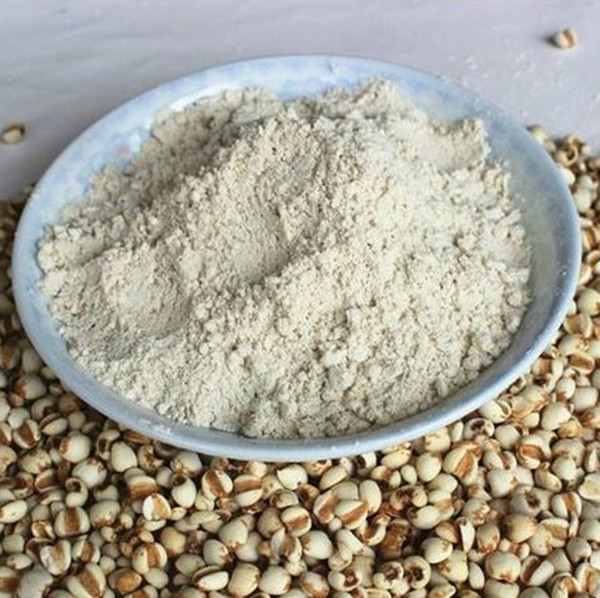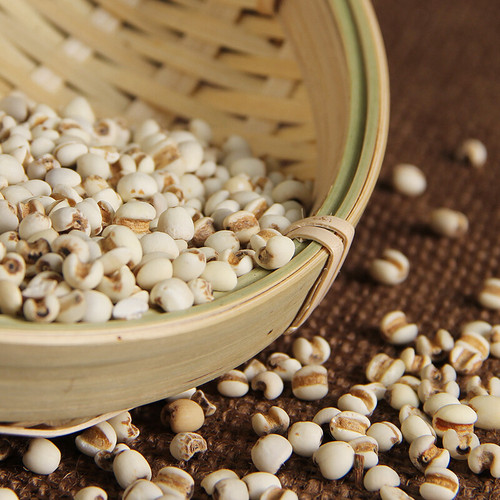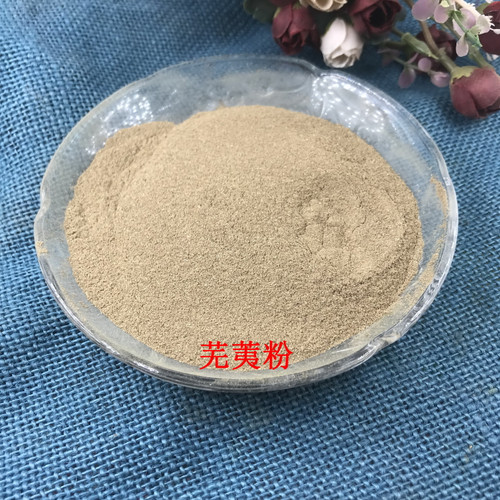Product Overview
Parts used: Dried ripe kernel
TCM category: Herbs that drain Dampness
TCM nature: Cool
TCM taste(s): Sweet
Meridian affinity: Spleen Stomach Lung
Scientific name: Coix lacryma-jobi
Other names: Coix, Adlay, Adlay millet, Coixseed, Tear grass, Chinese pearl barley
Use of job's tears (Yi Yi Ren) in TCM
Please note that you should never self-prescribe TCM ingredients. A TCM ingredient is almost never eaten on its own but as part of a formula containing several ingredients that act together. Please consult a professional TCM practitionner, they will be best able to guide you.
Preparation: After harvest, take the kernel, remove impurities and dry
Dosage: 9 - 30 grams
Main actions according to TCM*: Regulates water and encourages urination. Tonic to the Spleen and stops diarrhea caused by Spleen Deficiency. Reduces inflammation and eliminates pus. Dispels Wind-Damp Bi Pain. Expels Damp-Heat.
Primary conditions or symptoms for which job's tears may be prescribed by TCM doctors*: Edema Oliguria Enuresis Rheumatoid arthritis Diarrhea Lung abscess Appendicitis Verruca plana Colitis
Contraindications*: This herb should not be used by pregnant women.
Common TCM formulas in which job's tears are used*:
For rheumatic and arthritic conditions combine job's tears with ephedra (Ma Huang), apricot seeds (Xing Ren) and liquorice (Gan Cao).
For Lung abscess and tobacco toxicity combine job's tears with houttuynia (Yu Xing Cao) and fritillary bulbs (Chuan Bei Mu).
For Summer-Heat with fever, severe thirst and reduced urine combine job's tears with talc (Hua Shi), korean mint (Huo Xiang), eupatorium herbs (Pei Lan) and lotus leaves (He Ye).
For abdominal distension, difficult urination and constipation combine job's tears with bush cherry pits (Yu Li Ren), poria-cocos mushrooms (Fu Ling) and talc (Hua Shi).
For Damp-Heat and toxic accumulation with joint pain combine job's tears with smilax glabra roots (Tu Fu Ling).
Key TCM concepts behind job's tears (Yi Yi Ren)'s properties
In Traditional Chinese Medicine (TCM), job's tears are plants that belong to the 'Herbs that drain Dampness' category. These herbs are typically diuretics, meaning that they promotes the increased production of urine in order to remove Damp that has accumulated in the body. According to TCM Damp accumulates first in the lower limbs, causing edema and impaired movement. From there, if unchecked, it can move upward and impair digestion and eventually the respiratory system.
Furthermore job's tears are plants that are Cool in nature. This means that job's tears tend to help people who have too much "heat" in their body, although with less effect than a plant that would be Cold in nature. Balance between Yin and Yang is a key health concept in TCM. Those who have too much heat in their body are said to either have a Yang excess (because Yang is Hot in nature) or a Yin deficiency (Yin is Cold in Nature). Depending on your condition job's tears can help restore a harmonious balance between Yin and Yang.
Job's tears also taste Sweet. The so-called "five elements" theory in Chinese Medicine states that the taste of TCM ingredients is a key determinant of their action in the body. Sweet ingredients like job's tears tend to slow down acute reactions and detoxify the body. They also have a tonic effect because they replenish Qi and Blood.
The tastes of ingredients in TCM also determine what organs and meridians they target. As such job's tears are thought to target the Spleen, the Stomach and the Lung. In TCM the Spleen assists with digestion, blood coagulation and fluid metabolism in the body. The Stomach on the other hand is responsible for receiving and ripening ingested food and fluids. It is also tasked with descending the digested elements downwards to the Small Intestine. In addition to performing respiration, the Lungs are thought to be a key part of the production chain for Qi and the body fluids that nourish the body.
Use of job's tears (Yi Yi Ren) as food
Job's tears are also eaten as food. It is used as an ingredient in dishes such as Coix congee or Job's Tears Salad.






